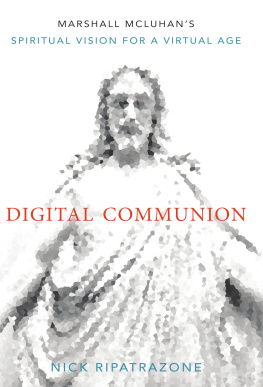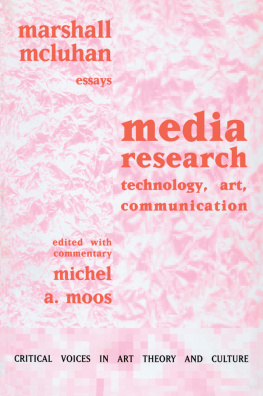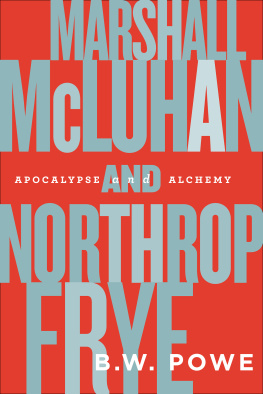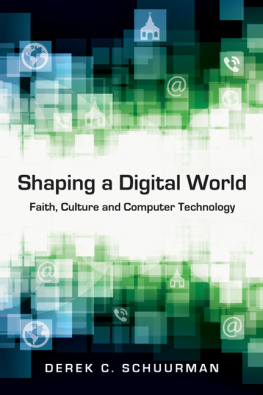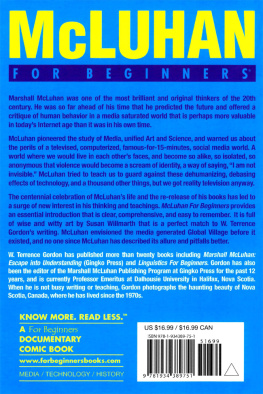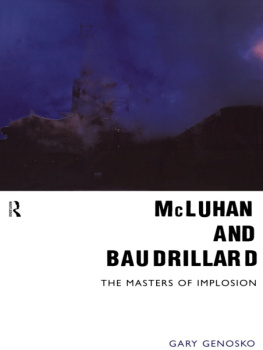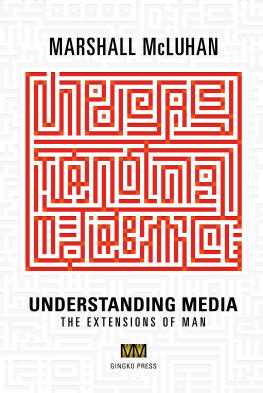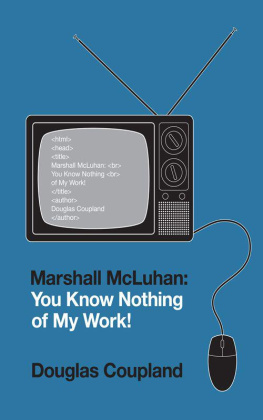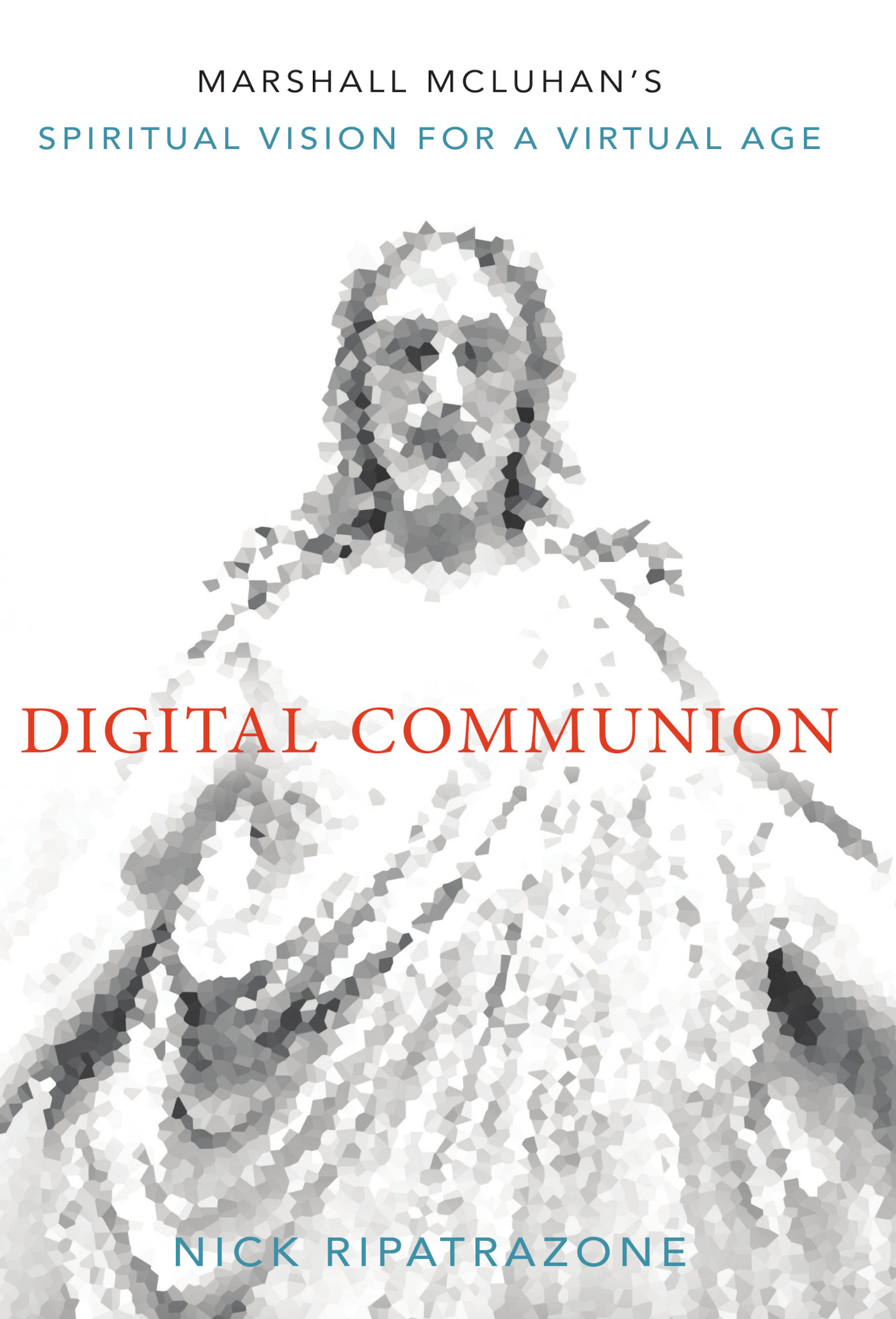
Praise for Digital Communion
Weve achieved enough distance from McLuhan to revisit him afresh. In this engaging book, Nick Ripatrazone deftly shows how McLuhans prescience means he can still show us our future. As we emerge from a global pandemic, during which we have been digitally baptized in unexpected ways, McLuhans insights about incarnate faith in a virtual world are more timely than ever. Ripatrazone, who combines sparkling prose with theological insight, is an ideal guide.
James K. A. Smith, professor of philosophy, Calvin University; editor in chief, Image journal; author of How (Not) to Be Secular and You Are What You Love
While McLuhan is widely regarded as a prophet of our digital age, few writers have taken on the religious foundation of his vision as seriously and compellingly as Nick Ripatrazone does in this remarkable book. Digital Communion is a masterpiece of biographical criticism, one that uncovers the Catholic roots of ideas that are now inscribed in our digital ecosystem and illuminates how the virtual might reimagine the sacred. It utterly transformed how I think about McLuhan and the spiritual possibilities that still inflect contemporary technologies.
Meghan OGieblyn, author of God, Human, Animal, Machine and Interior States
Nick Ripatrazones Digital Communion is a joy to read. Meticulously researched, the book uncovers an often-sidelined aspect of Marshall McLuhans media theoriestheir spiritual foundationsby imaginatively weaving biography, historical analyses, and critical readings of McLuhans writings, as well as of other writings crucial to his thinking.
Diletta De Cristofaro, Research Fellow in the Humanities, Northumbria University, UK; author of The Contemporary Post-Apocalyptic Novel
Digital Communion
Digital Communion
Marshall McLuhans Spiritual Vision for a Virtual Age
Nick Ripatrazone
Fortress Press
Minneapolis
DIGITAL COMMUNION
Marshall McLuhans Spiritual Vision for a Virtual Age
Copyright 2022 Nick Ripatrazone. Printed by Fortress Press, an imprint of 1517 Media. All rights reserved. Except for brief quotations in critical articles or reviews, no part of this book may be reproduced in any manner without prior written permission from the publisher. Email or write to Permissions, Fortress Press, PO Box 1209, Minneapolis, MN 55440-1209.
Scripture texts in this work are taken from the New American Bible, revised edition 2010, 1991, 1986, 1970 Confraternity of Christian Doctrine, Washington, D.C., and are used by permission of the copyright owner. All Rights Reserved. No part of the New American Bible may be reproduced in any form without permission in writing from the copyright owner.
Cover image: Joshua Eckstein / Unsplash
Cover design: LUCAS Art & Design, Jenison, MI
Print ISBN: 978-1-5064-7114-3
eBook ISBN: 978-1-5064-7115-0
While the author and 1517 Media have confirmed that all references to website addresses (URLs) were accurate at the time of writing, URLs may have expired or changed since the manuscript was prepared.
For Amelia, Olivia, and Jennifer
Contents
Broadcast Religion
Calls flooded the switchboard at Yankee Stadium in late September 1965. People wanted tickets for the hottest show in townand operators had to turn away scores of unhappy fans. Such late-season demand wouldnt be surprising, except that the New York Yankees were having one of their worst seasons in decades. Theyd recently lost their final home game of the season against the Chicago White Sox, played in front of a paltry crowd of 10,419 fans.
Operators had to refer excited callers to the chancery of the archdiocese of New York, because callers were pining for tickets to see Pope Paul VI, who was planning a momentous, one-day trip to New York City. The pope would soon pack 90,000 into Yankee Stadium to celebrate a Mass that would be broadcast worldwideand foretell the electronic future of religion.
People dont come to us now, English cardinal John Heenan had recently lamented. We must go to them. This apostle moved more than four thousand miles on an Alitalia DC-8, landing at the airport named for the first Catholic president, the late John F. Kennedy.
The trip was unprecedented. Paul VI was the first pontiff to visit America. The citys police commissioner assigned eighteen thousand police officers to the visit, stationing them along the popes route and at events. He urged New Yorkers to stay off the streets and instead watch the event on television. In addition to the Mass at Yankee Stadium, the pope was scheduled to meet with President Lyndon B. Johnson, give a speech at the United Nations, journey to Saint Patricks Cathedral, and conclude with a visit to Michelangelos Piet displayed at the New York Worlds Fair.
Wooden barricades lined sidewalks along the papal motorcade route. Windows of stores near Saint Patricks Cathedral were boarded up. Subways planned to run on frantic rush-hour schedules during his visit. Sisters at Cathedral High School in the Bronx were told the night before that ninety thousand copies of the popes homily were needed. The high school didnt have enough paper, so the sisters sent messengers around the city to other schools and churches and finally finished their work at two in the morningwith enough time for a nap before morning Mass.
Everyone, it seemed, was ready for the popeexcept the citys largest newspaper, the New York Times. The publication was on strike, along with most of the citys other papers. Editors and managers at the Times thought the Newspaper Guild, particularly its many Catholic members, would find a way of settling the strike in time to cover one of the most challenging stories in the citys history.
They didnt, but A. M. Rosenthal, the papers metropolitan editor, got an unusual reprieve. Bantam Books recruited the striking staff to work on contract to produce an instant book about the popes visit.
By that time, Pope Paul VI was back at the Vatican. Old news, however fast, is still old. The book was a valiant, impressive effortbut the fact remained that the citys traditional mode of journalism missed an iconic event. The answer to the darkness of local print media was a different medium: television.
All three major networksNBC, ABC, and CBScarried continuous television coverage of the popes visit without commercial interruption.
Pope Paul VI was aware of the ecumenical, international electronic moment. He quoted Romans 1:8 during his homily at Yankee Stadium: Your faith is proclaimed all over the world. Although liturgical reforms called for most of the service to be spoken in the local vernacular, Paul chose Latin to emphasize the universality of the mass.
For a few hours, electronic communion thrived worldwide. Less than a decade later, Pope Paul VI appointed a Canadian professor of literatureMarshall McLuhanto the Pontifical Council for Social Communications. Tall, eclectic, and able to pontificate on most any subject, the Cambridge-educated scholar had shifted from an academic focus on poetry to examinations of pop culture. It seemed like the perfect fit: the television pope would be advised by the electric oracle, the one person who seemed to truly understand the effects of the new electronic media.
McLuhan, a Catholic convert, seemed excited at the prospect of advising a church grappling with the results of electronic modernity. But while he would receive notices of meetings in Rome and tried to engage in dialogue with other committee members, it was to no avail. The silence was a source of great disappointment. The darling of secular print and television media was largely ignored by his own church while that church was grappling with how to remain essential in a rapidly changing world. McLuhan was truly the one for the job: He was erudite, confident, playful, and pious. He was an observer and predictor of trends. In short, he paid attention to the constantly evolving world, and he knew that intellectual risks, and the occasional failure, were necessary to understand that world. It was a lost opportunity.
Next page
